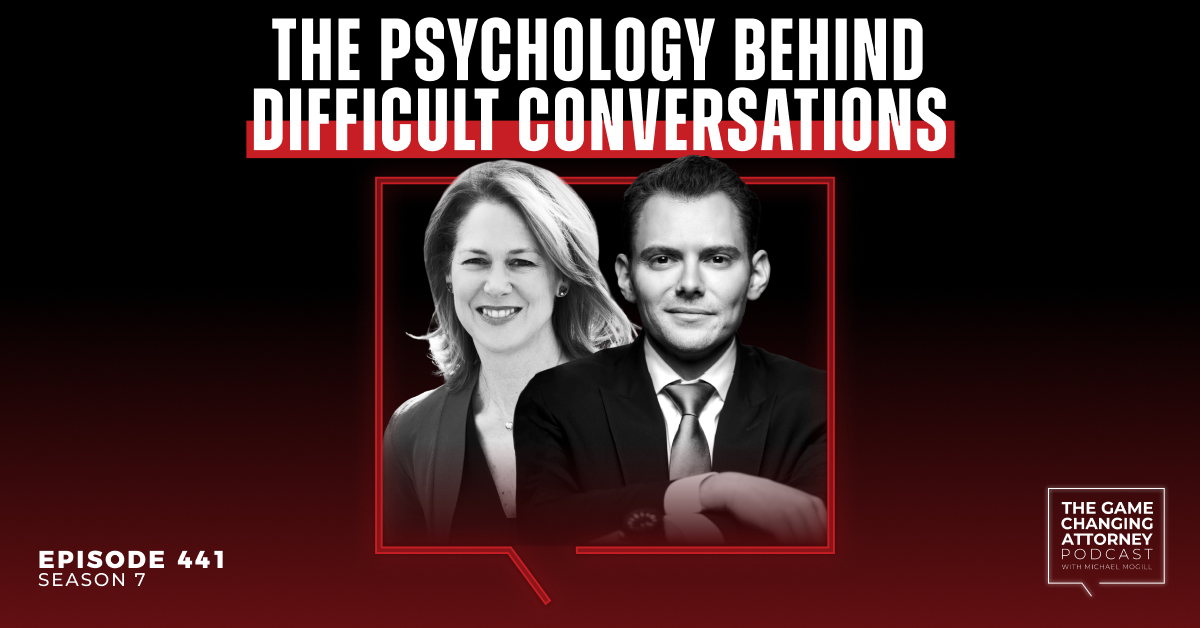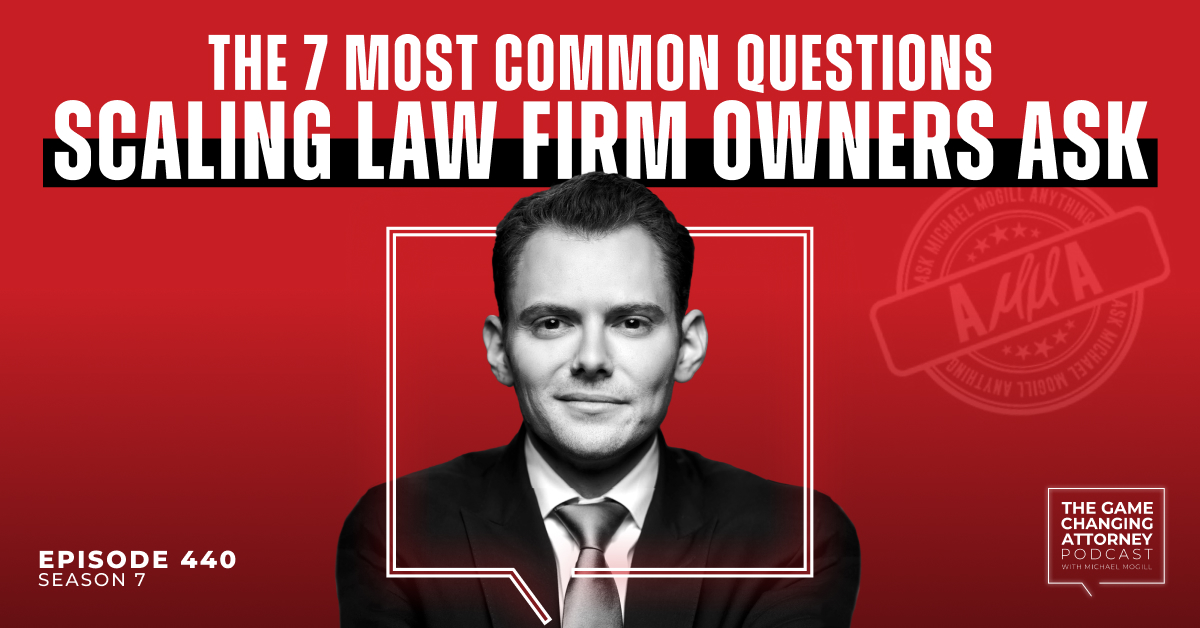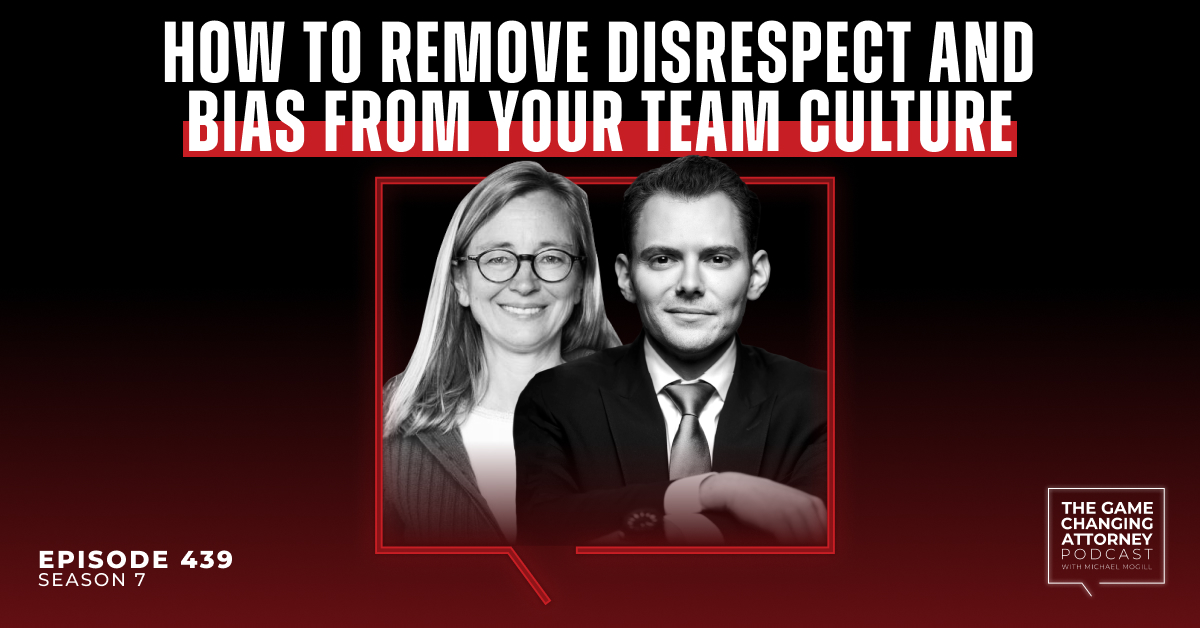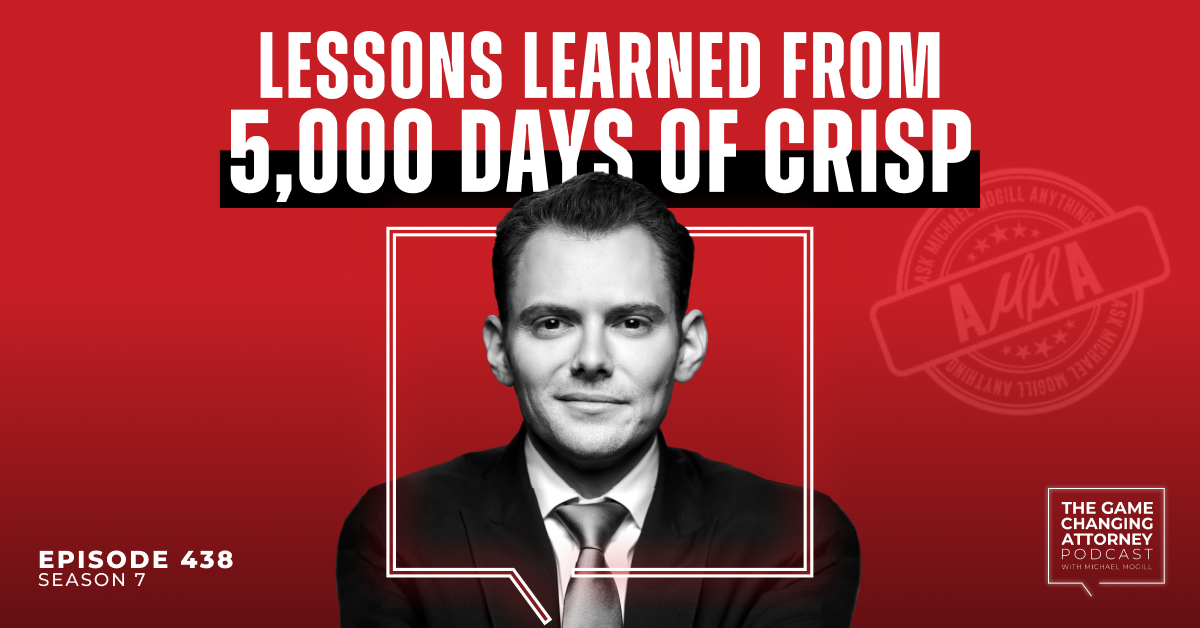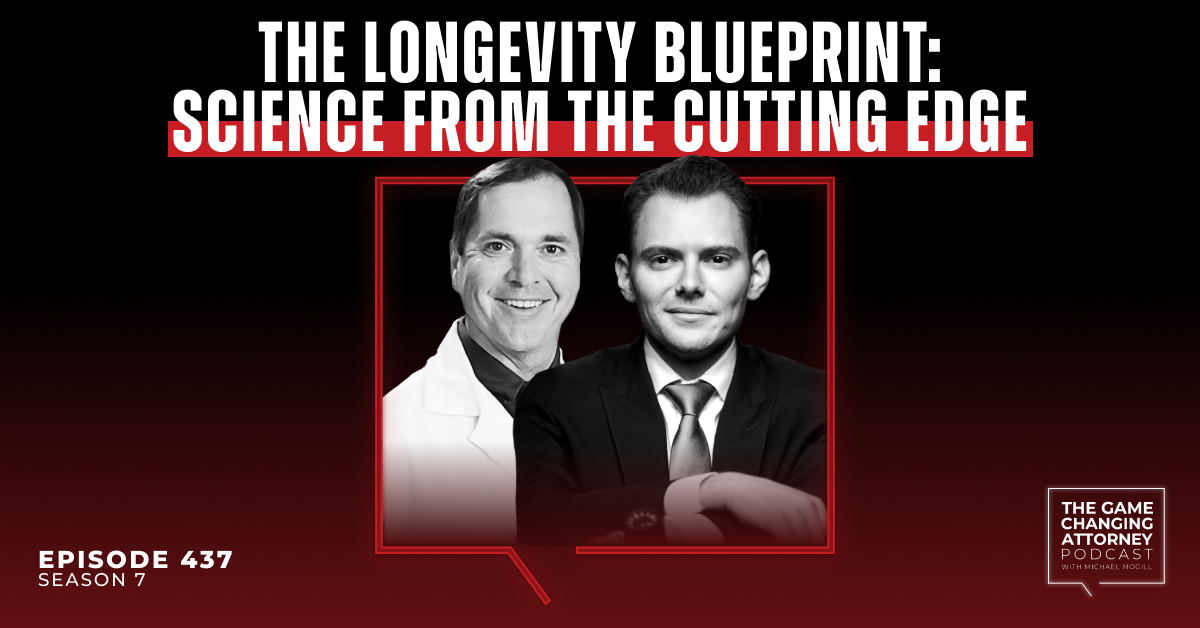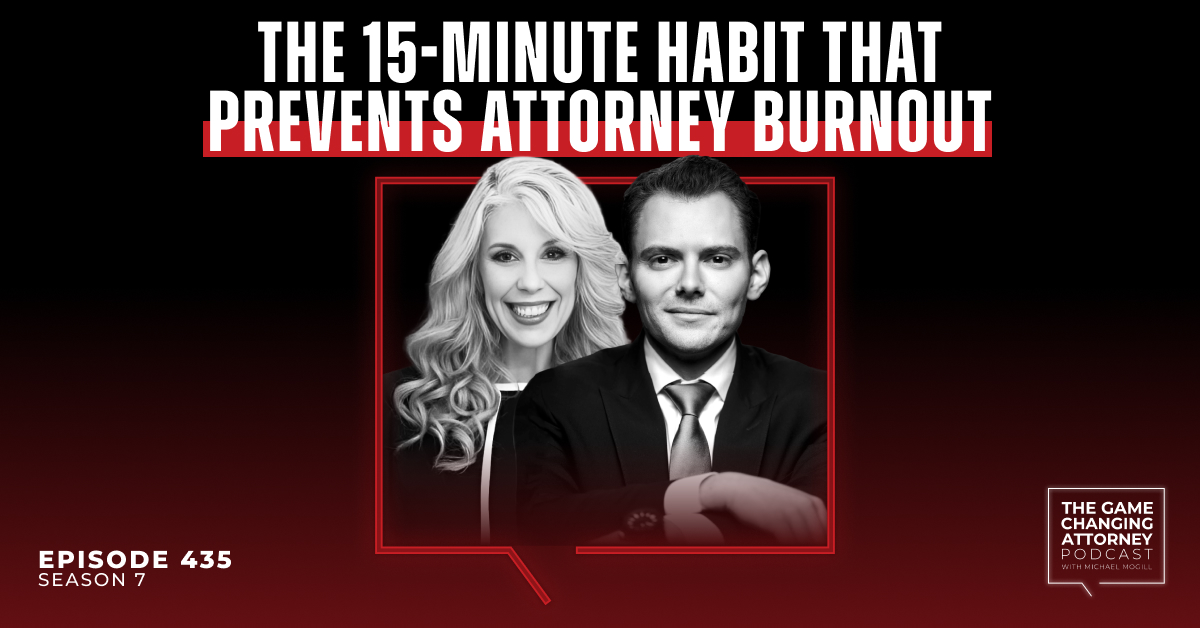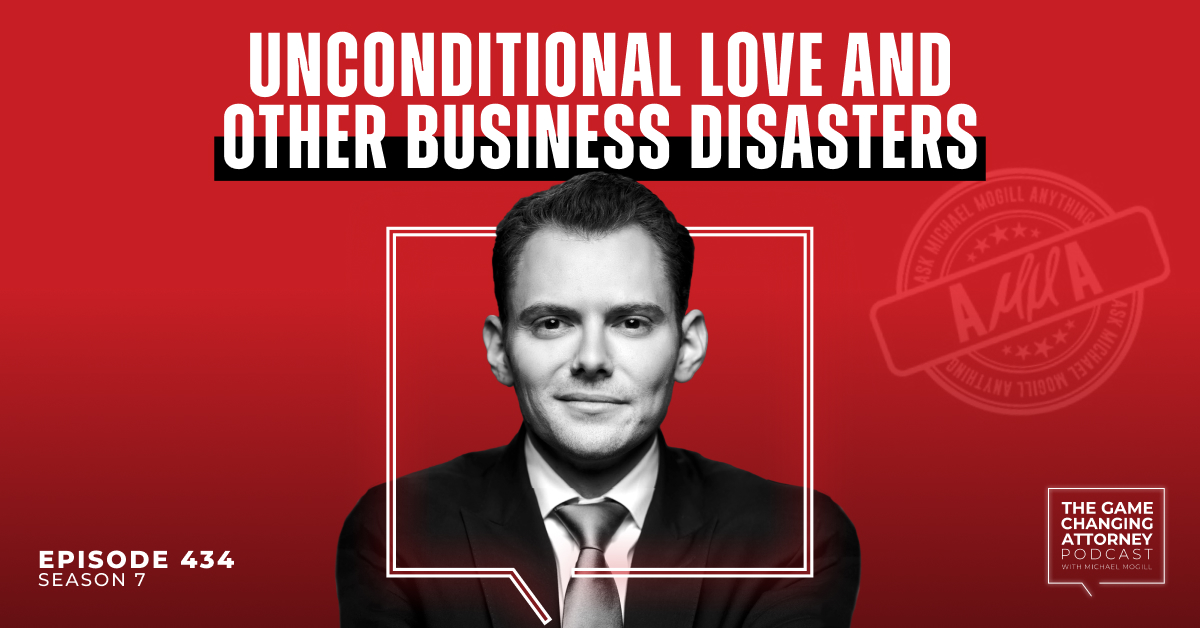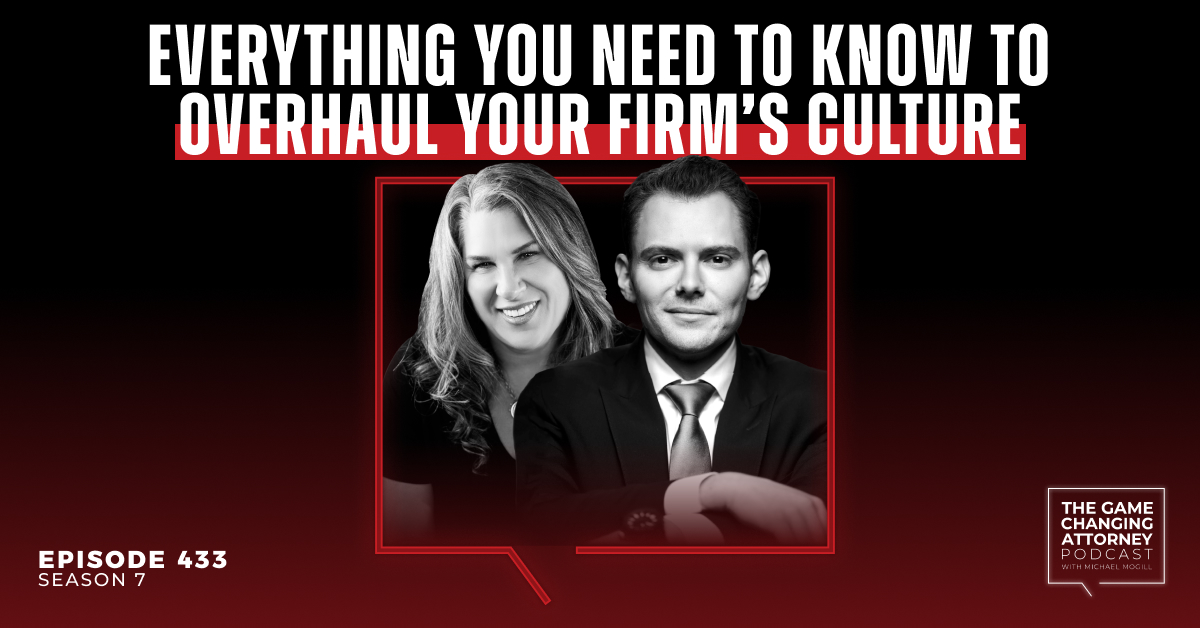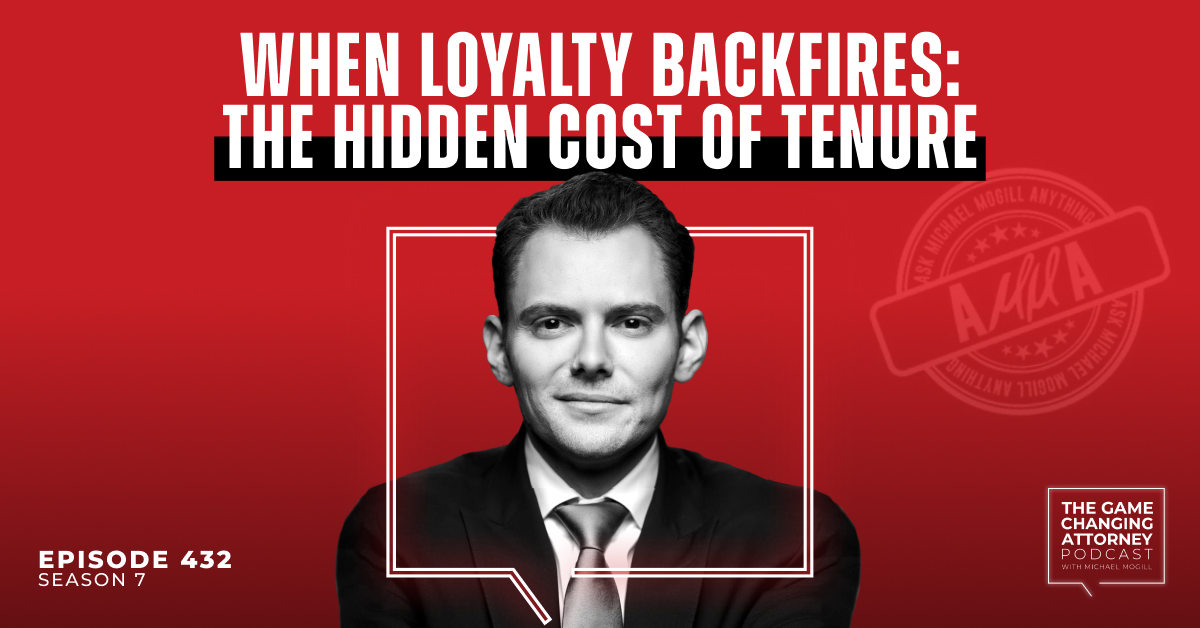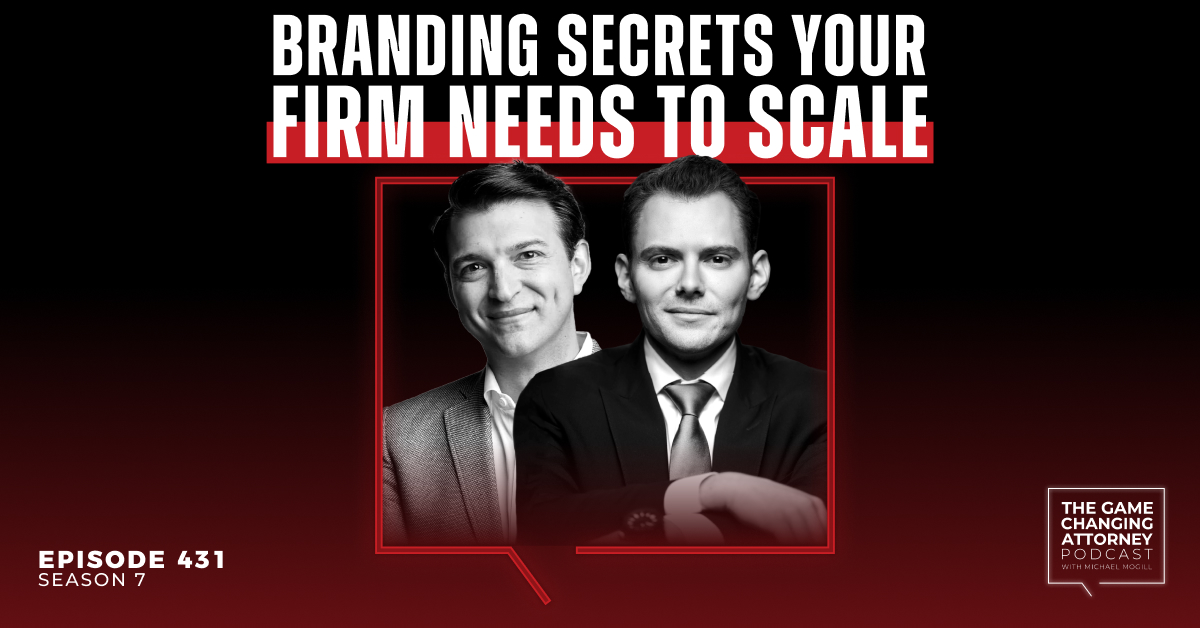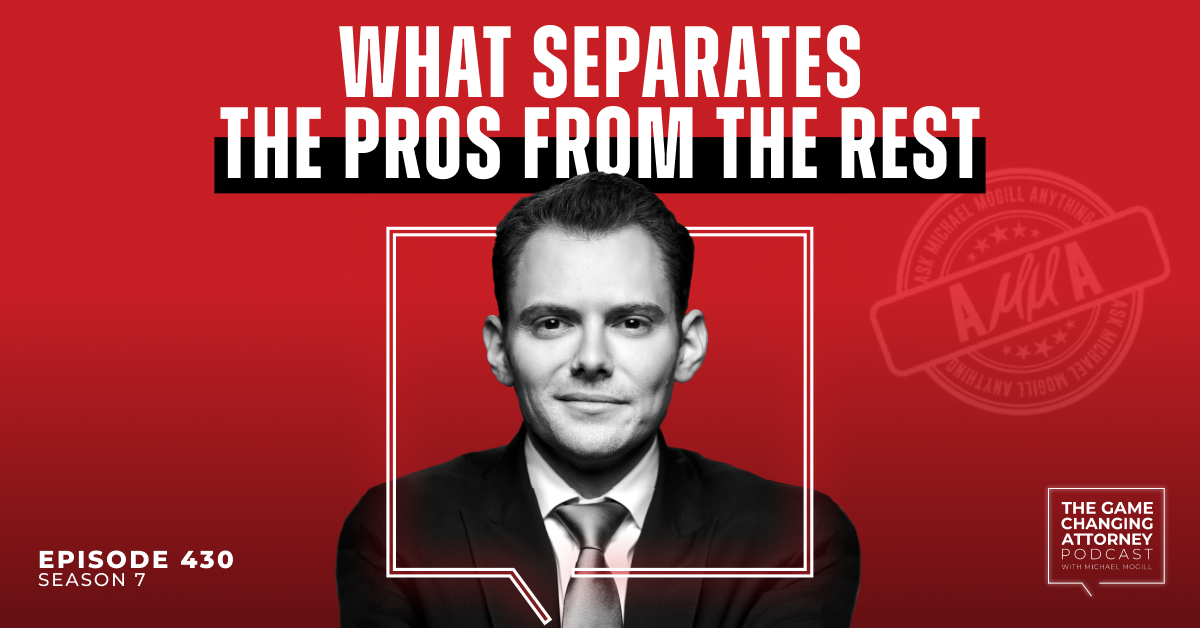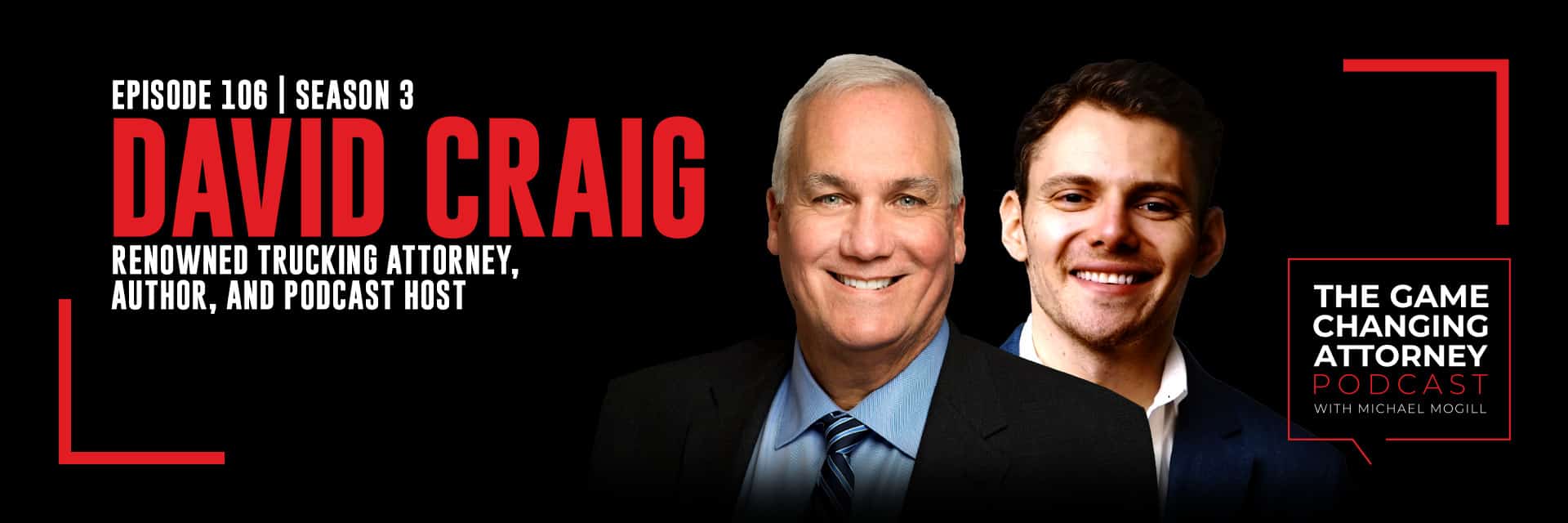
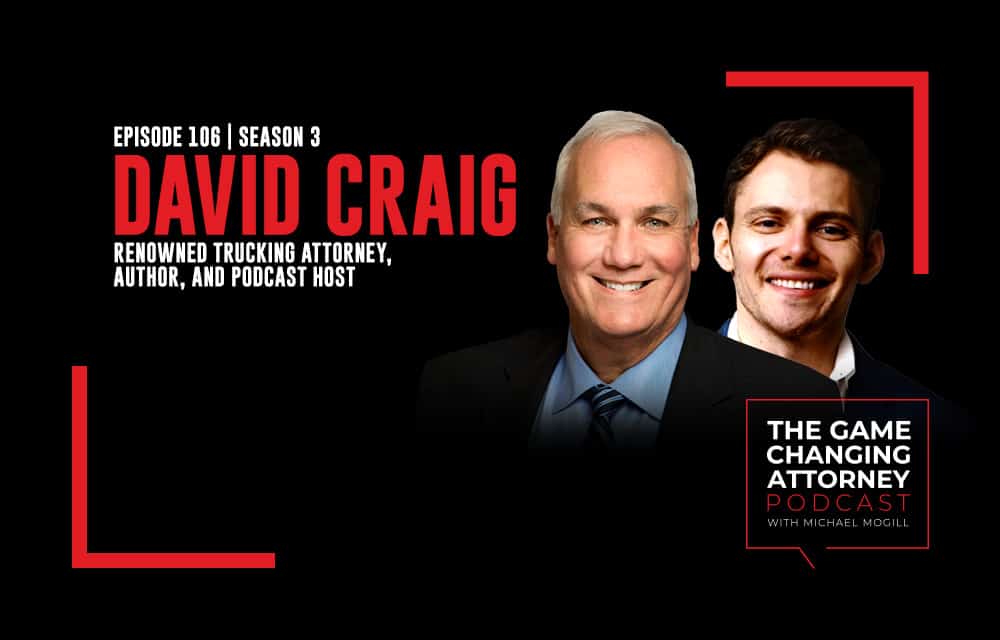
Episode 106 — David Craig — Impactful Legacy: Building a Firm that Stands the Test of Time
Today, the impact of a good, committed attorney can go far beyond the courtroom — and David Craig is taking advantage of that fact. One of the country’s most renowned trucking lawyers, Craig has become the host of his very own podcast, written his first book, and has many additional plans to keep changing his clients’ lives.
In this episode of The Game Changing Attorney Podcast, David and Michael sit down to discuss:
- Why sharing your knowledge with others not only builds trust, but creates demand
- Why having love and respect for people is the key component to being great
- What it takes to become one of the nation’s most successful trucking lawyers
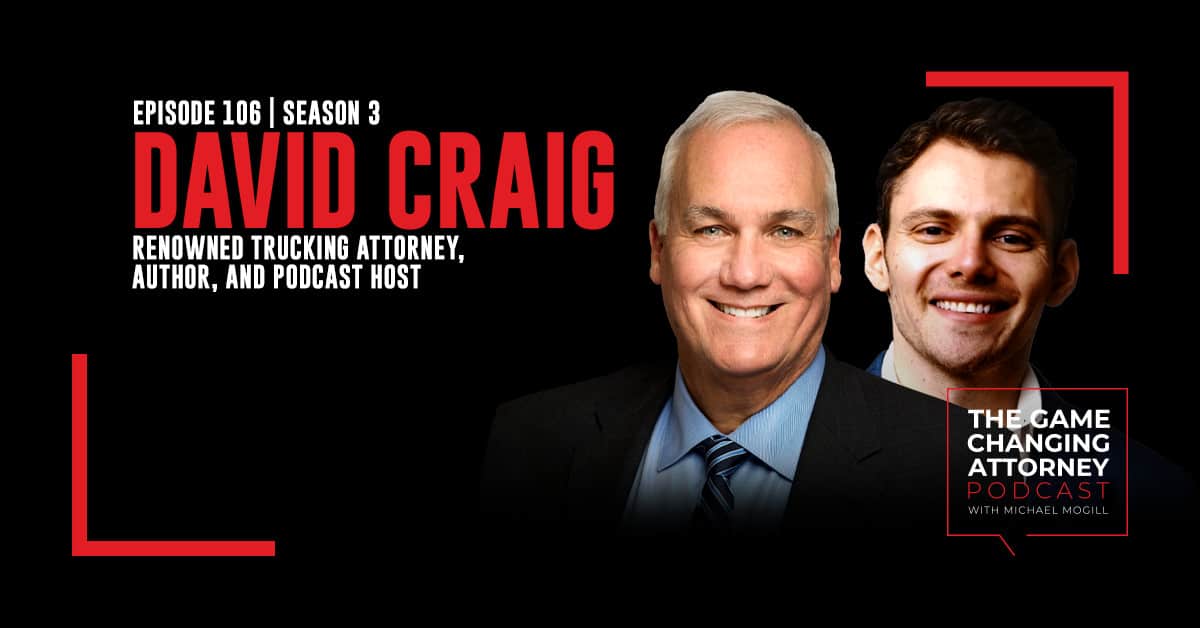
Listen & Subscribe
Show Notes:
Don’t judge a book by its cover. “The way my family judged people was by their character — not their resources. I think that was extraordinarily important to shaping who I am today because I never knew there was anything other than that. I was taught to treat everybody with respect, and that there was no one person better than all the others. That’s been ingrained in me since I was a child.”
A lawyer’s origin story. “I had a good time in high school — probably a little too good of a time. I remember one time when a friend and I went to speak to the guidance counselor, he mentioned that he wanted to go to law school and become a lawyer. I showed interest in pursuing the same path, but when we went to present this idea to our counselor, they told me in front of my friends that I would need to find something else along the lines of vocational school because law school wasn’t for me. My friends laughed, and that moment became a motivator for me to want to succeed and prove everyone wrong.”
Proceed with caution. “Having success is a dangerous thing. You start having a lot more temptation and begin to think of yourself differently and more highly. When I graduated college, I started working a lot and focused on winning. The better I got, the more ‘bad guys’ needed me: offers from big corporations and insurance companies started rolling in more often. I even had a man from a large corporation invite me out to lunch one day where he slid autopsy photos across the table to me and said, ‘I think I’m going to be accused of murdering my wife.’ He was willing to pay me a lot of money to gather up a team. This eventually went to the newspapers and I kept saying, ‘No comment.’ My son helped me realize that I had stopped thinking about my promise to help other people, and instead I was thinking about myself and my own success.”
Paving the way. “To be good at [representing cases of] trucking accidents, you have to put in time. I’d learned a lot about trucking on my own, and over the years I sporadically had trucking cases and I always enjoyed them. They were more challenging, typically had better defense lawyers against them, and there was more money against you and on the line. Most importantly, though, the people needed you and you had the opportunity to make a difference in their lives. If you invest the time and energy into getting experience, you will eventually be successful. You can read all the books you want, but if you’re not walking in and out of the courtroom, you’re not going to really learn everything you need to know.”
How to be a great trucking lawyer. “If you want to succeed in representing trucking cases, you’ve first got to be a good trial lawyer, and people need to know that about you. Secondly, you need to invest the time and energy into learning the law simply because a truck wreck is so much different than a car wreck. As long as you’re humble enough to admit you don’t know everything, there are plenty of resources available to you such as books, seminars, videos, and more. Deep down, however, I believe the most important thing is to care about people.”
Money’s not the motive. “I love talking to people. When I go and speak at conferences, I think about how the chances of those 150-200 people in the audience getting into a trucking accident is slim to none, which really is no payoff monetarily for me. But the fact that I get to touch, educate, and make a difference in peoples’ lives is powerful to me.”
A life or death situation. “I was diagnosed with colon cancer — and the crazy thing was that I wasn’t worried about me at all simply because I’d enjoyed every moment of my life. I married the person I loved, raised three wonderful kids, and had everything I needed and wanted. That’s when I decided to step things up for my law firm because I didn’t want it to die with me, if that’s what was to happen to me. I was scared it wouldn’t survive after working so hard to build it and make it real. So I started running meetings outside of the hospital. I turned the page while I was there and decided to work on my business before I knew whether I would or wouldn’t survive.”
Being a well-rounded person. “To be successful, you have to be successful in business, but many people don’t want to work to be successful in life as well. To me, success means that I have a successful family and my relationships with my friends. Thankfully, those people know that when I need to focus on my work, they give me the grace and space I need to get the job done. Though my passion may come off as obsessive sometimes, they know that it’s all coming from a good place, and I try to make up for it when I’m not working. I believe that if you care about the people around you instead of yourself, you will be successful.”
What does being a game changer mean to you? “I think a game changer is a person who completely changes the way we think. I hope to be a game changer in how people think of lawyers. When I started my practice, personal injury attorneys were much different and had a lot more fun — but I thought that shouldn’t be the way it is. I believed in having women as partners, key attorneys, and playing vital roles in the firm. We should care about people, not just chasing money, and doing our best to get the job done.”
RESOURCES & REFERENCES
After the Crash Podcast
Craig, Kelley & Faultless
Joe Fried
ATAA
Semitruck Wreck: A Guide for Victims and Their Families by David Craig
Crisp
CrispX
Connect with Michael
- Text directly at 404-531-7691
